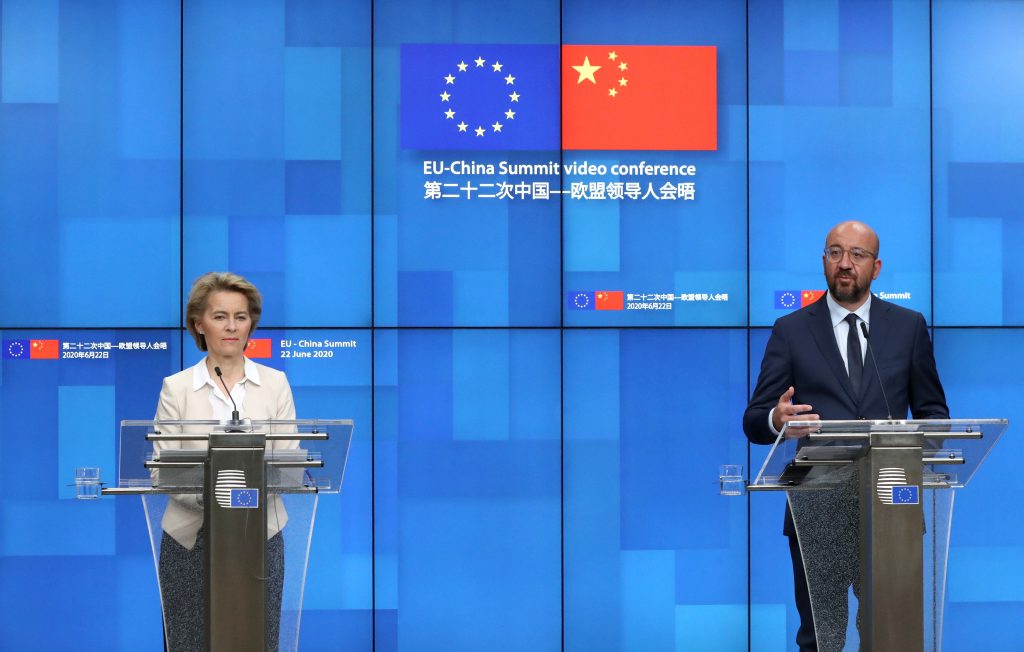The China opportunity
Despite serious conflicts of interest, there are several areas in which cooperation with China can help to advance likeminded allies and partners’ interests.
There are many areas of productive economic relations. China’s purchases of US Treasury bonds have financed the US debt and deficit and held down interest rates in the United States and the global economy. China’s response to the 2008 financial crisis, in coordination with the United States, helped to mitigate the severity of the economic downturn. China’s low-cost manufacturing has made it the workshop of the world for many products, ranging from children’s toys to iPhones. China is also a large export market for likeminded allies and partners in many sectors, including agriculture, minerals, construction equipment, and wide-body aircraft. China’s cooperation might also be needed to maintain the stability of the global financial system in the wake of the COVID-19 crisis and resulting economic shocks.
Likeminded allies and partners can also cooperate with China on environmental issues. As China is the world’s largest emitter of greenhouse gases, any meaningful action to mitigate the impact of climate change will require action from Beijing. China is making major investments and has become a leader in green technologies, which can contribute to global efforts to counter rising temperatures. In 2020, Xi Jinping announced that China would adopt the goal of net-zero emissions by 2050. In addition, the United States Environmental Protection Agency (EPA) already has a significant partnership with China’s Ministry of Ecology and the Environment (MEE) to address issues of air quality, water pollution, soil remediation, and more.

In the realm of security, China has greatly increased its financial and manpower support for United Nations peacekeeping operations and now ranks tenth globally in the number of peacekeeping forces. China has many motivations for providing peacekeeping troops; it uses them to gather intelligence, gain experience with overseas deployments, and secure countries where it has large investments. The CCP may also use peacekeeping to boost its global image and improve its relations with other countries.
The PRC has played a constructive role in nuclear nonproliferation. It supported multilateral sanctions against nuclear programs in Iran and North Korea, and participated in multilateral negotiations with both states. While China did not go as far as Washington might have liked in supporting and enforcing tough economic penalties, Beijing shares the West’s concern about nuclear programs in both countries, and has been willing to take steps to address the challenge.
Washington and other capitals have expressed an interest in including Beijing in future arms-control negotiations. The Trump administration explored the possibility of trilateral discussion with Beijing and Moscow on a follow-on agreement to the New Strategic Arms-Reduction Treaty (New START). China has not yet participated in binding arms-control agreements, but brining Beijing into the fold will be necessary for an effective 21st century arms control regime.
Likeminded allies and partners and China have cooperated on global public-health issues over the past two decades. In 2002, they worked together to help establish the Global Fund to Fight Aids, Tuberculosis, and Malaria. In 2014, in response to the Ebola epidemic, the United States provided hundreds of millions of dollars in aid and thousands of personnel, while China sent supplies and medical workers to build hospitals and testing facilities to address the Ebola epidemic. US and Chinese personnel also worked together on the ground to distribute supplies and conduct research into the Ebola virus.
Cooperation between the United States and China has been lacking in the COVID-19 pandemic due, in part, to China’s lack of transparency in the early stages of the crisis and Washington’s threats to withdraw from the WHO. Still, improved cooperation with China on future global public-health challenges would be desirable.
China has also played a constructive role in global food security. Among other activities, it has provided agricultural-assistance programs to tens of countries in Africa.
Image: Chinese Vice President Xi Jinping (R) speaks next to U.S. Vice President Joe Biden during talks at a hotel in Beijing August 19, 2011. REUTERS/Ng Han Guan/Pool (CHINA - Tags: POLITICS)